Mozambique: Nampula reaffirms commitment to initiatives that promote social inclusion
Getting married in Machaze: Not likely before the bicycles and barrels
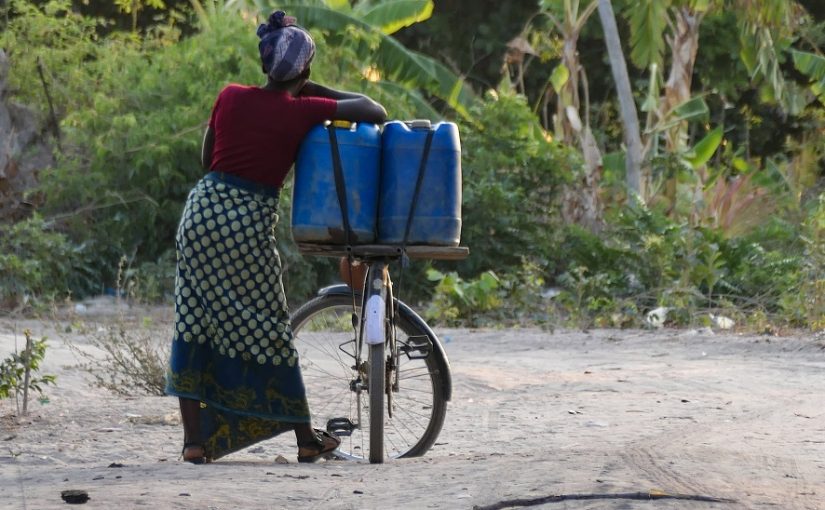
All photos: André Catueira / Lusa
Under the scorching sun in the dirt streets of Machaze, central Mozambique, women do their daily chores by bicycle, which most receive as an engagement gift.
There are thousands of women riding bicycles around here.
“My first bicycle was given to me by my husband,” a migrant worker in South Africa, “to help with the housework,” says mother-of-five Síria Titosse, who spends almost six hours a day carrying water and firewood to her home.
Even after a 50-kilometre round trip in 36 degree Celsius heat, the 43-year-old Mozambican wife manages a good-natured smile at the end of the journey, suggesting that there is no room for laziness when moving on to the next item in her routine.
Síria will transport home 75 litres of water in three plastic containers.
Since this type of task traditionally falls to women, they won’t accept a home without a bicycle.
A bicycle and a lot of patience. “Sometimes we go to the fountain at three in the morning and we only get water at sunrise, at 5:00 a.m.. Other times we go at 12:00 and only get water at 4:00 p.m.,” Siria adds.
In Machaze, the bicycle and the water barrels are mandatory items in the lobolo (dowry) that is traditionally paid to the bride’s family in order to marry her.
“Marrying without a bicycle is complicated,” because gender equality is a mirage and only with pedals are differences attenuated, says Mavonde resident Adélia Nhambe.
“First, the woman asks if a bicycle comes with the marriage proposal, or not. Without a bicycle, they won’t accept it,” she explains. Adélia lives in a remote area, 80 kilometres from Chitobe, the Machaze district headquarters, where the tradition remains firmly rooted.
“They don’t accept”, because custom dictates that the women are to “carry the water, carry the firewood and women are also the ones who go to [work in] the machamba”, the family’s subsistence farming vegetable garden, sometimes far from home, Adélia told Lusa.
And if the husband wants to go along, he takes a ride – he doesn’t usually cycle himself.
Distance is also a challenge since water causes disease, and when it becomes unfit for consumption the women have to look for alternatives – and they are also the ones who have to take the children to the hospital.
Elisa Filipe often carries a load on her head in her daily routines, but with so many bottles of water “would be impossible”, she tells Lusa with one hand on the bike’s handlebars and the other on the load she carries on the back seat.
She usually travels in a group of up to a dozen women who do their chores together.
Bicycles and water barrels are bought by Mozambican miners working in South Africa. It is common to see public transport vehicles crossing the border with trailers overloaded with goods that are unavailable in the country’s remote villages.
In Mozambique, you have to pay fees to ride a bicycle, but in Machaze they are exempt.
“It’s to make housework easier,” in a land of scattered villages, with a shortage of drinking water, schools and health centres, explains Queface Fombe, the permanent secretary of the district government.
There is drilling underway to discover water sources, but, often, nothing comes of it, he laments. The few boreholes that are successful attract thousands of people from the surrounding areas.
While waiting for more clean water and other public services, the women of Machaze will continue to go about their business riding their bicycles.


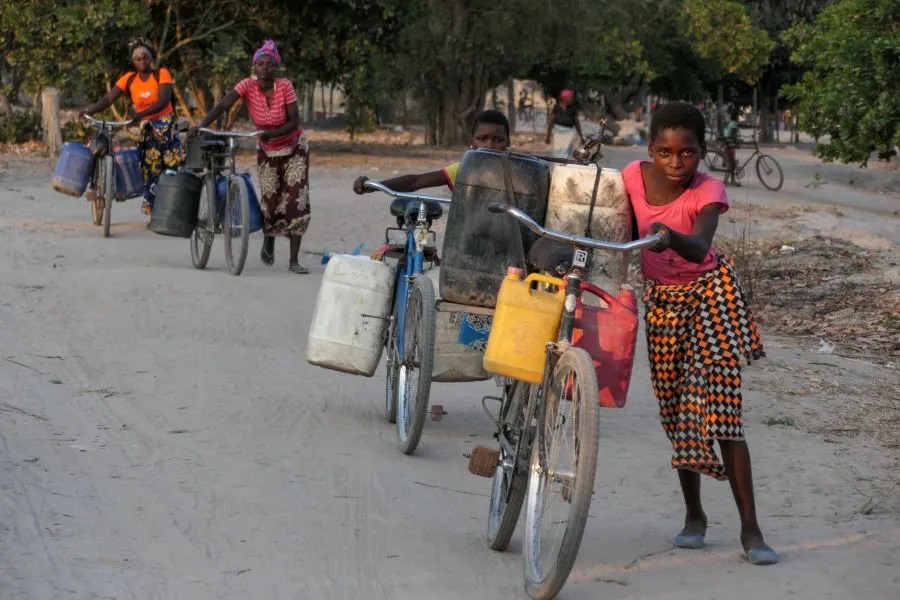
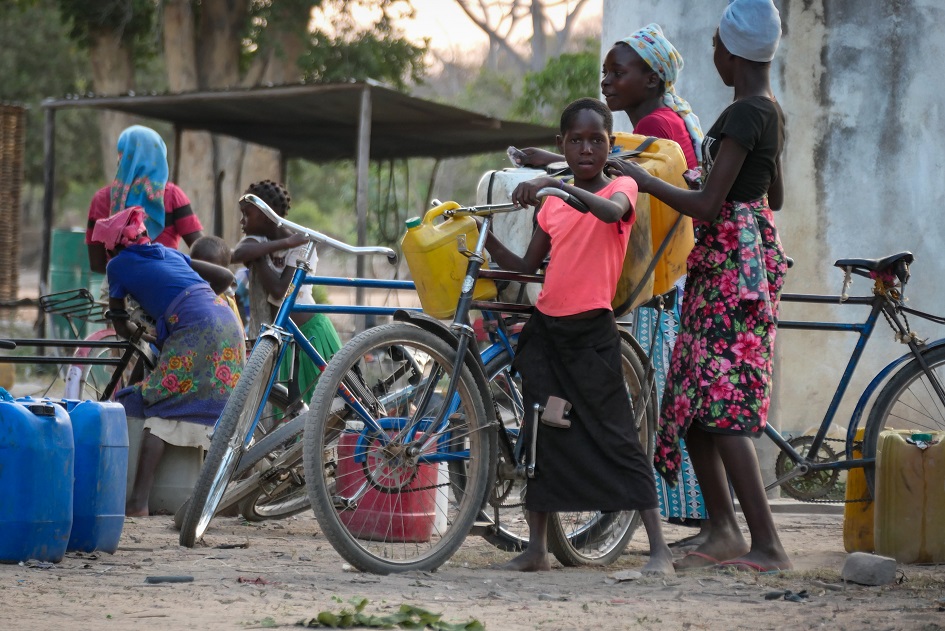
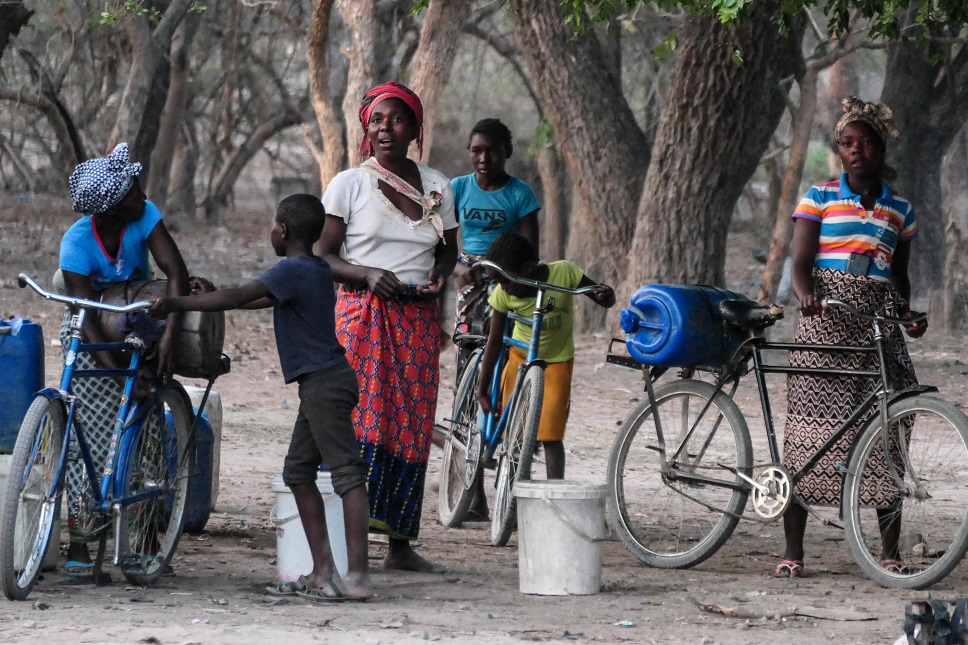
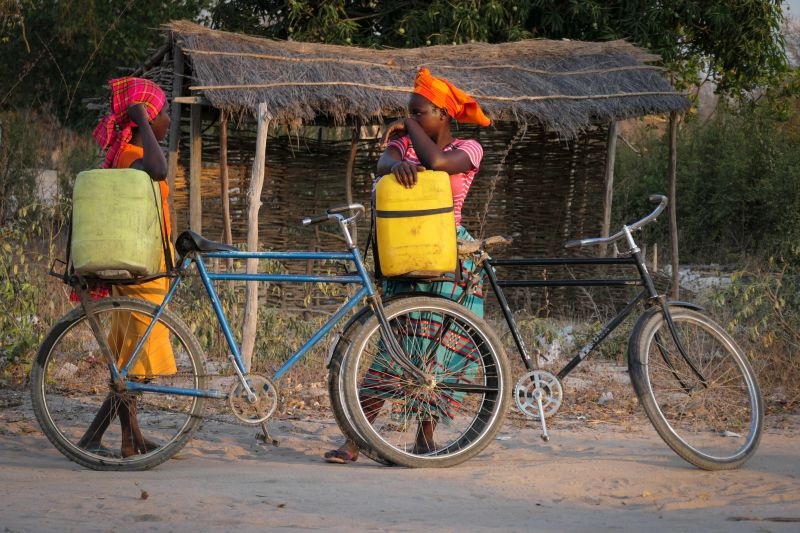










Leave a Reply
Be the First to Comment!
You must be logged in to post a comment.
You must be logged in to post a comment.